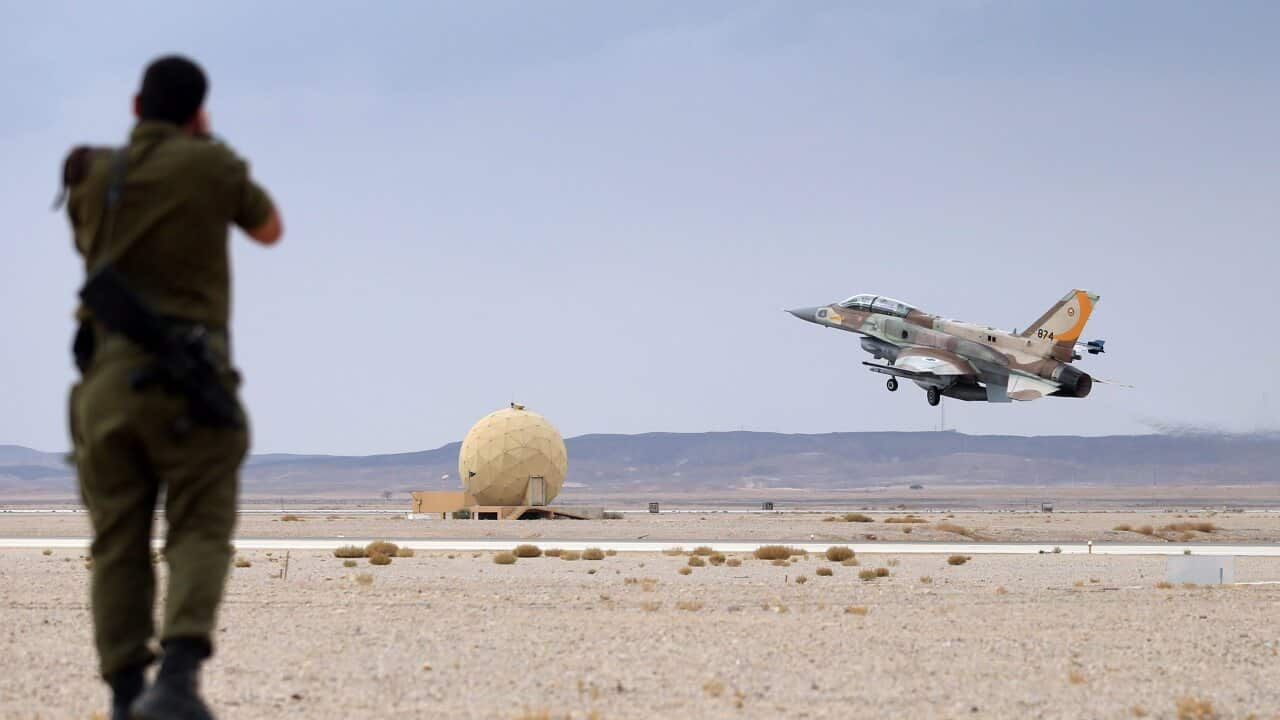Israeli Prime Minister Benjamin Netanyahu has vowed to achieve victory after the military said it had shot down almost all of the more than 300 drones and missiles launched by Iran, in a major escalation of the long-running covert war between the regional foes.
Iran launched the unprecedented attack on Israeli positions as sirens sounded in many places and blasts were heard in the skies above Jerusalem early Sunday.
Iran had repeatedly threatened to strike Israel in retaliation for that the reprisals were imminent.
“We intercepted, we repelled, together we shall win,” Netanyahu posted on X formerly known as Twitter.
The Israeli military said the armed forces had shot down more than 99 per cent of the Iranian drones and missiles and were discussing follow-up options.
Israel’s Channel 12 TV cited an unnamed Israeli official as saying there would be a “significant response” to the attack.
The war in Gaza, which Israel invaded after an attack by Hamas on 7 October, has ratcheted up tensions in the region, spreading to fronts with Lebanon and Syria and drawing long-range fire at Israeli targets from as far away as Yemen and Iraq.
The war in Gaza, which Israel invaded after an attack by Hamas on 7 October, has ratcheted up tensions in the region, spreading to fronts with Lebanon and Syria and drawing long-range fire at Israeli targets from as far away as Yemen and Iraq.
Iran’s most powerful ally in the region, the Lebanese Hezbollah group — which has been exchanging fire with Israel since the Gaza war began — said early on Sunday it had fired rockets at an Israeli base.
British maritime security company Ambrey said in a statement drones were also reportedly launched against Israel by Yemen’s Houthi group, which has attacked shipping lanes in and around the Red Sea, to show solidarity with Hamas.
Those clashes now threaten to morph into a direct open conflict pitting Iran and its regional allies against Israel and its main supporter, the US.
Regional power Egypt urged “utmost restraint”.
Israel’s chief military spokesman, Rear Admiral Daniel Hagari, called Iran’s actions “very grave”, telling a televised briefing they “push the region toward escalation”.
Iran launched dozens of ground-to-ground missiles at Israel, including more than 10 cruise missiles. Most were intercepted outside Israeli borders, Hagari said. The Iranian salvo caused light damage to one Israeli military facility, he said.
The Israeli military said it was not advising residents to prepare to take shelter, revising an earlier alert in an apparent signal of the end of the threat.
Iran had vowed retaliation for what it called the Israeli strike on its embassy compound that killed seven Revolutionary Guard officers, including two senior commanders. Tehran said its strike was punishment for “Israeli crimes”.
Israel has neither confirmed nor denied responsibility for the consulate attack.
“Should the Israeli regime make another mistake, Iran’s response will be considerably more severe,” the Iranian mission to the UN said, warning the US to “stay away”.
However, it also said Iran now “deemed the matter concluded”.
US President Joe Biden, who spoke by phone with Netanyahu, said he would convene a meeting of leaders of the Group of Seven major economies on Sunday to coordinate a diplomatic response to what he called Iran’s brazen attack.
US Defense Secretary Lloyd Austin said America did not seek conflict with Iran but would not hesitate to act to protect US forces and support the defence of Israel.
The UN Security Council was set to meet on Sunday after Israel requested it condemn Iran’s attack and designate the Revolutionary Guards as a terrorist organisation.
Iran’s Fars news agency quoted a source as saying Tehran was closely watching Jordan, which might become the next target in case of any moves in support of Israel.
Jordan, which lies between Iran and Israel, had readied air defences to intercept any drone or missile that violated its territory, two regional security sources said.
Residents in several Jordanian cities said they heard heavy aerial activity.
Syria, an ally of Iran, said it was putting its ground-to-air defence systems around the capital and major bases on high alert, army sources there said.
The European Union, Britain, Japan, the Czech Republic, Denmark, France, Mexico, the Netherlands and Norway condemned Iran’s attack.
Australia condemns attack
and urged its citizens in the Middle East to take shelter after Tehran launched the attack.
Prime Minister Anthony Albanese decried Iran’s actions in a statement posted to X, formerly known as Twitter.
“Iran has ignored our call, and those of many other countries, not to proceed with these reckless attacks,” he said.
“Anyone who cares for the protection of innocent life must stand against these attacks.
The prime minister also condemned Iran’s behaviour more broadly.
“Iran’s ongoing flouting of international law, its egregious human rights abuses and threat to international security is why this government has imposed targeted financial sanctions and travel bans,” he said.
Treasurer Jim Chalmers said the development was incredibly concerning as violence threatens to spill into the broader region.
“We’ve seen enough bloodshed in the Middle East already,” he told ABC’s Insiders.
“We don’t want to see any more lives lost in that part of the world and it would be much better if the Iranians use their influence in the region to try and calm tensions rather than inflame them.
“We don’t want conflict in the Middle East to be broader and deeper than it already is.”
Defence Industry Minister Pat Conroy said the escalation was not in anyone’s interest.
“Regional escalation of the current Middle East conflict is something that, quite frankly, the whole world has feared since the beginning of the conflict,” he told Sky News.
“Iran has been a malign actor in the region for a long, long time and we condemn the attacks.”
